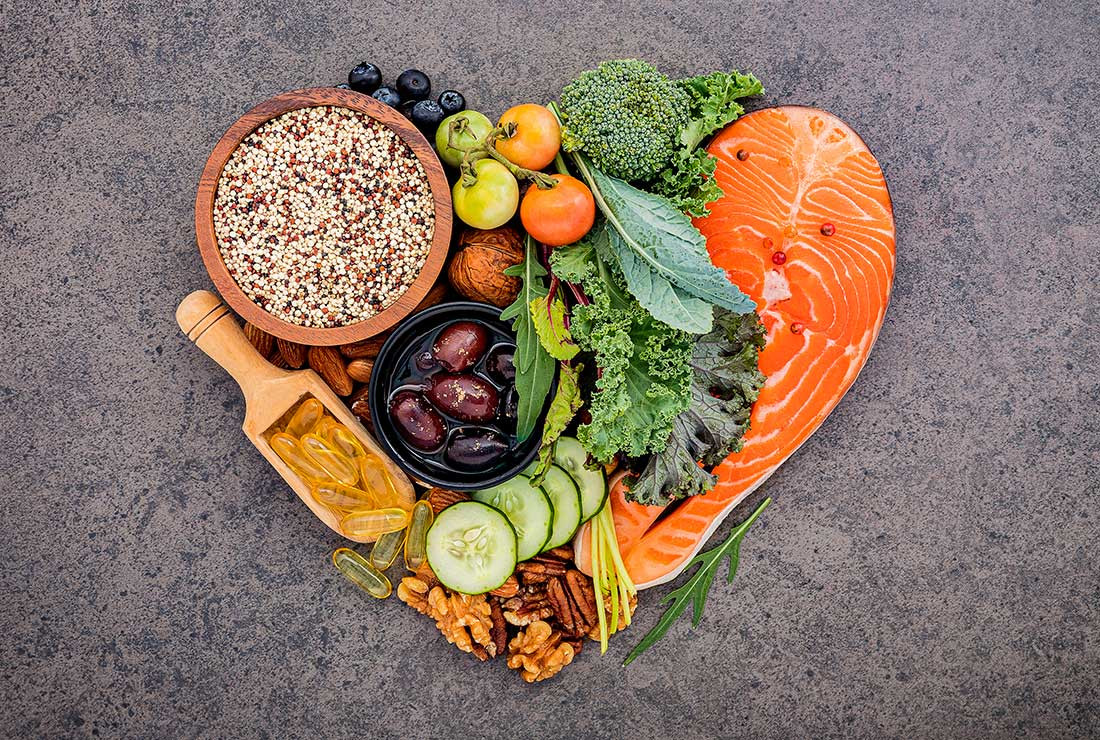Plant Based Beef vs. Traditional Meat: Which Is Better for the Environment?
Plant Based Beef vs. Traditional Meat: Which Is Better for the Environment?
Blog Article
Everything About Healthy And Balanced Food: Advantages of Checking Out Plant Based Options
The discussion surrounding plant-based diet plans has obtained considerable attention in the last few years. Many individuals are discovering the possible health advantages, nutritional benefits, and ecological influences linked with these nutritional selections. As individuals become a lot more knowledgeable about their food's impact on well-being and sustainability, concerns emerge regarding the practicalities of taking on such a way of living. What details modifications can one anticipate, and exactly how might these options improve not just individual health and wellness but additionally the earth's future?
Recognizing Plant-Based Diet Plans
Lots of people connect plant-based diets mostly with vegetarianism or veganism, these diet plans can incorporate a broad range of eating patterns that focus on whole, minimally refined plant foods. Such diets often consist of fruits, veggies, whole grains, seeds, beans, and nuts, while restricting or eliminating animal items. This adaptability allows people to tailor their dietary selections according to personal preferences and dietary needs. Some might take on a primarily plant-based diet while still sometimes consuming meat or dairy, often described as a flexitarian method. The focus continues to be on integrating even more plant foods, which can lead to a diverse array of flavors and dishes. Recognizing these different analyses of plant-based consuming is important for appreciating its availability and allure in modern food society.
Health Advantages of Plant-Based Foods
The health and wellness advantages of plant-based foods are substantial, offering a nutrient density advantage that supports overall well-being. Research study suggests that these foods can enhance heart health and wellness and play an essential role in efficient weight administration. By integrating a lot more plant-based alternatives, people might improve their dietary options and promote long-lasting health and wellness.
Nutrient Density Advantage
Nutrient density plays an important role in the health benefits of plant-based foods, making them an engaging selection for those looking for a balanced diet plan. Plant-based foods, such as fruits, vegetables, legumes, nuts, and entire grains, are often abundant in crucial vitamins, minerals, and anti-oxidants while being reduced in calories. This high nutrient density allows people to eat less calories while still fulfilling their dietary demands. Furthermore, these foods are packed with dietary fiber, promoting gastrointestinal health and aiding in weight administration. By incorporating nutrient-dense plant-based alternatives, customers can improve their overall wellness, sustain their immune systems, and reduce the threat of chronic diseases. Ultimately, the nutrient thickness of plant-based foods highlights their importance in a health-conscious way of living.
Heart Health And Wellness Improvement

Weight Administration Support
Along with advertising heart health and wellness, a plant-based diet can substantially help in weight management. This nutritional approach stresses whole foods such as fruits, veggies, vegetables, nuts, and whole grains, which are normally lower in calories and greater in fiber compared to animal-based items. The high fiber content assists increase satiation, reducing general calorie intake. Moreover, plant-based diets are usually rich in crucial nutrients while low in harmful fats, making it simpler to keep a healthy weight. BBQ Sauces. Research suggests that people that adopt a plant-based way of life often tend to have lower body mass indexes (BMIs) and experience more successful weight reduction contrasted to those that take in meat-heavy diet plans. Consequently, accepting plant-based choices is a tactical selection for reliable weight management
Nutritional Value of Plant-Based Components
Plant-based active ingredients are abundant in essential nutrients, providing a diverse range of vitamins, minerals, and antioxidants that add to general wellness. A contrast of healthy protein resources discloses that while pet items are usually considered as superior, many plant-based options offer sufficient protein and other advantageous compounds. Understanding the nutritional worth of these active ingredients can aid people make notified dietary choices.
Important Nutrients in Plants
Nutrient-rich ingredients found in plants offer a varied selection of crucial nutrients that add considerably to overall wellness. These components are rich in vitamins A, C, and K, which sustain immune feature, vision, and blood clotting, respectively. Furthermore, plants supply essential minerals such as potassium, calcium, and magnesium, essential for heart health, muscular tissue function, and bone strength. The existence of fiber in plant-based foods aids food digestion and promotes a healthy digestive tract microbiome. Anti-oxidants, found generously in veggies and fruits, assistance combat oxidative stress and anxiety and minimize swelling. Lots of plant foods are low in calories yet high in nutrients, making them an exceptional choice for those seeking to keep a healthy weight while making certain perfect nutrient consumption.

Comparing Healthy Protein Resources
Healthy protein sources vary considerably in their dietary accounts, with plant-based components providing unique advantages. Unlike pet healthy proteins, which typically include saturated fats and cholesterol, plant healthy proteins have a tendency to be more lower in these unhealthy parts. Legumes, nuts, seeds, and entire grains are rich in important amino acids, fiber, vitamins, and minerals. Lentils offer high protein web content together with significant iron and folate, while quinoa is a full protein, supplying all nine essential amino acids. In addition, plant-based proteins are often gone along with by antioxidants and phytochemicals that sustain overall wellness. The change to plant-based healthy protein resources not just boosts dietary consumption but additionally lines up with lasting dietary techniques, decreasing ecological impact and advertising long-term wellness benefits.
Environmental Influence of Plant-Based Eating
As recognition of climate modification expands, numerous people are exploring sustainable nutritional selections that can significantly decrease their environmental impact. Plant-based consuming has emerged as a substantial contributor to decreasing greenhouse gas exhausts, which are primarily related to animals manufacturing. The cultivation of fruits, vegetables, grains, and beans normally calls for fewer redirected here resources, such as water and land, compared to animal farming. In addition, plant-based diet regimens can lead to decreased logging, as less land is needed for grazing livestock or growing animal feed. By moving in the direction of plant-based alternatives, customers can sustain biodiversity and advertise much healthier ecosystems. In general, accepting plant-based eating not only benefits personal health and wellness yet also stands for a crucial action towards ecological sustainability and preservation initiatives.
Overcoming Common Misconceptions
While several people acknowledge the advantages of a plant-based diet plan, a number of misconceptions typically deter them from fully welcoming this lifestyle. A typical belief is that plant-based diets do not have sufficient protein; however, countless plant sources, such as legumes, nuts, and tofu, give adequate healthy protein. In addition, some think that this diet plan is pricey, when as a matter of fact, staples like beans, rice, and seasonal vegetables can be quite cost effective. An additional misunderstanding is that plant-based consuming is extremely restrictive, whereas it in fact uses a varied selection of tastes and foods. Ultimately, several worry that a plant-based diet may result in deficiencies, yet with proper planning, people can obtain all needed nutrients, including minerals and vitamins, while appreciating a variety of delicious dishes.
Tips for Transitioning to a Plant-Based Lifestyle
Making the change to a plant-based lifestyle can be an enriching experience, though it often calls for some support to navigate the initial modifications. People are urged to start progressively, including more fruits, vegetables, vegetables, and entire grains right into their dishes while reducing meat and milk consumption. Dish preparation is necessary; preparing a regular food selection can aid reduce the modification and avoid last-minute unhealthy choices. Discovering brand-new recipes and cooking methods can also enhance the experience and keep enjoyment regarding plant-based eating. In addition, signing up with support system or neighborhoods can offer inspiration and share important tips. Staying notified concerning nutrition guarantees balanced meals, protecting against deficiencies while promoting a healthy, gratifying plant-based lifestyle.

Delicious Plant-Based Dish Concepts
Exploring scrumptious plant-based meal concepts can influence individuals to embrace a much more nourishing diet plan. One prominent alternative is a passionate quinoa salad, featuring cherry tomatoes, cucumber, and a spicy lemon-tahini dressing. An additional favorite is a tasty lentil stew, packed with carrots, celery, and great smelling herbs, excellent for a reassuring dinner. For breakfast, overnight oats made with almond milk, chia seeds, and topped with fresh berries supply a nutritious start to the day. Going Here Furthermore, a lively vegetable stir-fry with tofu and a variety of colorful veggies can be a fast yet satisfying dish. Ultimately, velvety avocado toast on whole-grain bread, sprayed with seasonings and seeds, uses an easy yet delicious treat. These dishes showcase the variety and richness of plant-based consuming.

Frequently Asked Inquiries
Can a Plant-Based Diet Regimen Provide Sufficient Healthy Protein?
The concern of whether a plant-based diet can offer adequate healthy protein prevails. Countless resources, consisting of beans, nuts, seeds, and entire grains, can satisfy healthy protein requires successfully, sustaining a nutritious and well balanced diet regimen for individuals.
Are Plant-Based Diet Plans Appropriate for Kid?
The suitability of plant-based diet regimens for kids relies on careful planning. Ample nutrients should be ensured, consisting of proteins, minerals, and vitamins. With appropriate support, such diet regimens can sustain healthy growth and advancement in kids.
Exactly how Do I Eat in restaurants on a Plant-Based Diet plan?
Dining out on a plant-based diet plan entails seeking dining establishments with diverse food selections, requesting modifications, and discovering vegan-friendly choices. Preparation in advance and communicating nutritional choices can enhance the eating experience while keeping nutritional selections.
What Are Common Irritants in Plant-Based Foods?
Typical irritants in plant-based foods consist of soy, gluten, nuts, and seeds - Plant Based Beef. Individuals adhering to a plant-based diet regimen needs to understand these irritants and check out labels thoroughly to stay clear of negative responses and guarantee risk-free consumption
Can Plant-Based Diets Assist With Fat Burning?
Study shows that adopting a plant-based diet plan may help with fat burning because of its typically lower calorie density and higher fiber content. This combination can boost satiety, helping people handle their calorie consumption successfully. Lots of individuals link plant-based diet regimens mostly with vegetarianism or veganism, these diets can encompass a broad array of eating patterns that prioritize whole, minimally processed plant foods. Nutrient thickness plays an essential role in the health benefits of plant-based foods, making them an engaging selection for those seeking a balanced diet. Plant-based diet plans have actually been revealed to significantly enhance heart wellness, as they commonly contain aspects that support cardio function. In enhancement to promoting heart health, a plant-based diet regimen can considerably aid in weight monitoring. An usual idea is that plant-based diet plans lack enough protein; however, many plant sources, such as beans, nuts, and tofu, provide sufficient healthy protein.
Report this page